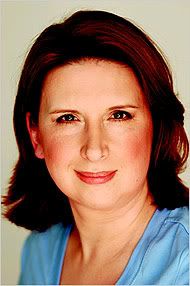I agree with the video regarding what it had to say about text online becoming more important in our society. It is, often times, the only or primary source of communication between individuals in the business field, students and professors at a large university, or even long-distance family members and friends. This fairly new means of communication has become so prevalent in our daily lives that two college professors wrote a book on it and its link to technology, identity and culture. Any person with access to a computer with Internet capability is able to view what is publicly posted on the web, so it is important that the author of the text recognizes this vast audience and uses strategies to properly address it.
To incorporate a personal example, my Facebook profile is blocked from any and all people I have not confirmed as my “friend.” This should bring about my unrestricted speech on my profile. However, I have realized that my Facebook friends consist of people I know from many different social circles – family members, church friends, the families I babysit for, high school friends, college friends, etc. – so I must adjust what exactly it is I want to say in hopes of keeping anyone from being offended or seeing me in a negative light. (It is more challenging than it seems to stay updated with photo uploads with friends when Dad still cannot accept that boys live on my floor, too.) Pleasing more than one age group or social circle at a time – especially on the Internet – can be a bit testing, but as I have realized these past couple of months, it is not impossible.
Creativity also plays a large role in the production of a webpage or blog. The creator wants to convey to his audience his ideas in a specific manner, giving them an idea of his personality. This utilizes the ethos appeal. Ethos is the way your audience perceives you in the context of your communication, which is difficult to achieve in web-based interaction. One must choose his words very carefully and select appropriate font colors and sizes, sound effects, and other visual and auditory components to make sure that his online project does in fact represent himself and his personality when necessary. Even in doing so, the author could be misrepresenting himself, as explained in the following article: How is Online Communication Different?
Moreover, I can only see the Internet and online communication getting more and more efficient and readily accessible in the years to come. So if you have not yet jumped on the online bandwagon, you should. Maybe you will get lucky and get your online poetry collection published or increase your business clientele! The possibilities are endless…
